Fun Facts About MJTY
Fun facts about MJTY

The surnames of those who are in the Back Hill build together an idiom 风花雪月, «four opposites of love». Although hieroglyph 锋 in word "Wufeng" is different from one in this idiom (风), they are homophones that equally sound fēng (and as we all remember, Wufeng is the mastermind of the last three saber techniques out of twelve used by the Back Hill, sooooo...🐱👤).

2. The names of Wufeng ranks build together an idiom 魑魅魍魉, «demons and monsters of the Martial World». These hieroglyphs actually mean three types of mythological Chinese monsters, not four: chī, mèi, and wǎngliǎng. In the last word a syllable wǎng (魍) sounds like wáng (王), which means "prince", so there are four princes of cardinal directions in Wufeng. The hieroglyph 魉 (liǎng) includes the phonetic key 两 (liǎng) as one of its elements, which means "a pair". And, as we know, Wufeng has got two bosses of the highest rank 🐱👤.

3. The names of those who live in the Front Hill are 宫商角徵羽, the pre-Tang dynasty names of tones in the pentatonic musical scale. The pentatonic scale is famous among musicians as something good for improvisation because all of these tones sound harmonically in any combination. Also, in the Confucian tradition these five tones were credited with a magical effect on society, at which gōng corresponded to the emperor, shāng - to ministers, jué - to the people, zhǐ - to affairs, and yǔ to material resources.
Maybe it all supposed to have a deep meaning and to symbolize something. Maybe it didn`t. Anyway, there are just fun facts.
More Posts from Sombredancer and Others
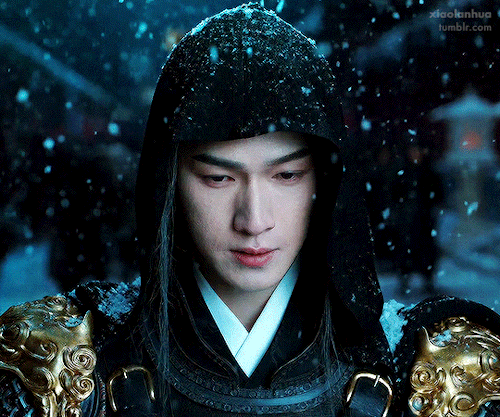
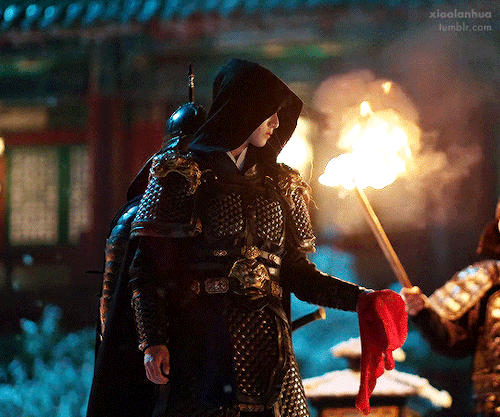
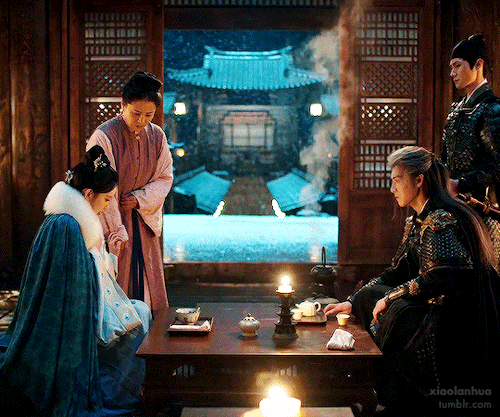

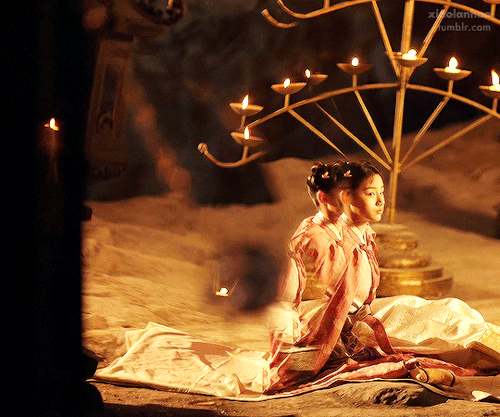




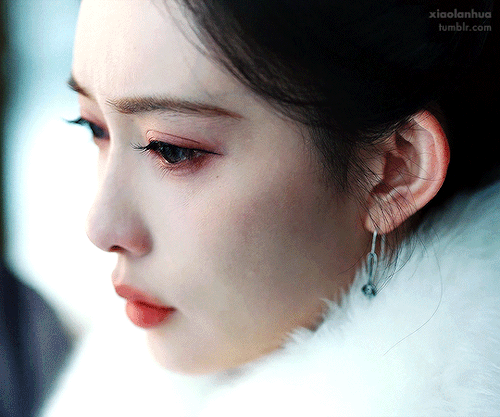
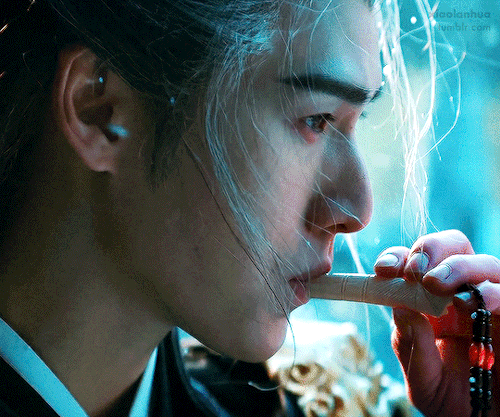

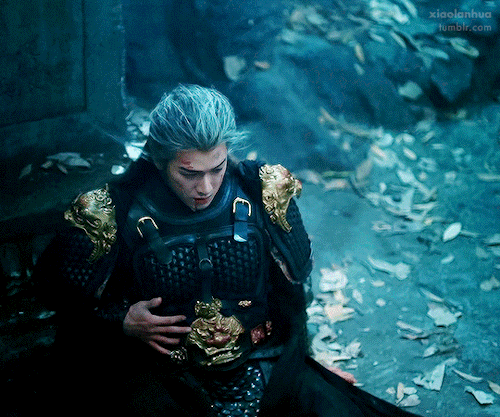
Blossom 九重紫 (2024) Dir. Zeng Qing Jie – Ep. 1
Recent visually beautiful and generally watchable Russian fantasy movies
(because I start forgetting they exist at all) Ironically, all of them are adaptations of books/comics.

I Am Dragon / Он — дракон (2015) This movie is a very free adaptation of the novel "The Rite" / "Ритуал" by Maryna and Serhiy Dyachenko (Марина и Сергей Дяченко). It's a reinterpreting of an ancient tale about a maiden, a hero and a dragon. I don`t like the novel because it's very postmodern, wracks the typical fairytale plot and hurts my escapist feelings by ugly reality, but the movie is pretty fairytale-ish and nice. Firstly, it is visually beautiful and represent Slavic pseudo-medieval lore the way it should have always been in Slavic fantasy.


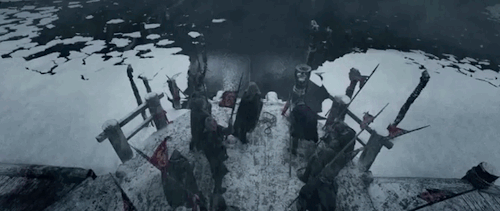
Secondly, as a love story between a monster and a maiden, it has got A PLENTY of tropes I'm usually looking for in Chinese dramas, so I understand very well why it was pretty popular in Asia.
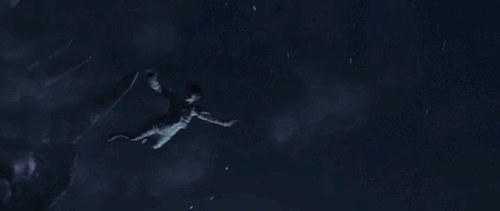

Thirdly, when I said it's visually beautiful I wasn't joking. The main hero is played not by an actor, but by a male model, who is shirtless all the time (and sometimes pantless) and has a very fit and good-looking body. It's something unbelievable that someone in Russia made a movie to please women's eyes! Really, it's insane!




The folk-rock band Мельница wrote an insanely beautiful song "Обряд" (The Rite) for this movie (more matched to the book plot, though), but it was never used as OST, which is a shame. The song is about a black sheep girl, who is denied by society and asks a dragon to come for her and to take her away, because the dragon is denied by this world just like her. You can listen to it here. The band also has a song "Змей" (The Wyrm) (based on Lev Gumilev's poem), which is more accurate to the plot of the movie: the wyrm kidnaps maidens to make them its wives, but they are all dying during the flight; at the end of the song a hero-knight is ready to shoot it in order to stop it. Listen to it here.

It ends with HE, which is better than the book's obscure ending, so it is pleasure for me to rewatch it till these days.

Major Grom: Plague Doctor / Майор Гром: Чумной Доктор (2021)
It is an adaptation of Russian comic series "Major Grom" by Bubble comics. I am traditionally not very happy with the source material, but it is very good reworked to be the screen play of this movie.

It's very beautifully made in terms of director's, cameraman's and screenwriter's work, which is a rare thing for Russian movies. Also, the actors are young and handsome, especially the villain, which is a rare thing not only for Russian movies, but for the current Western movies, too. It has got a lot of allusions to Russian reality and a lot of beautiful views of Saint Petersburg, the second capital of Russia and one of the most beautiful Russian cities. And it has got some unusual visual solutions that turn it into a comic it should be.

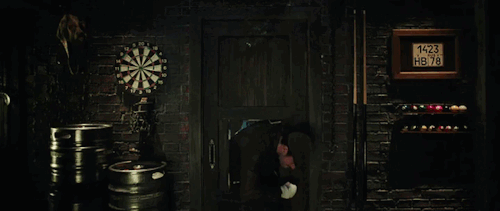
The plot revolves around a mysterious serial killer (kinda bad Batman), a black sheep police officer and Russian Mark Zuckerberg (kind of). Mark Zuckerberg is the best guy of this movie and I like him a lot! Серёёёёжа! 🧡🧡🧡

This movie wasn't popular in Russia because of political situation in the country by the moment of its release (the both sides found out in there something insulting for them and banned it), but even if it has something like that, I honestly didn't pay attention to it. It's just a nice blockbuster with a tragic and handsome villain. The villain also has got his own BL-drama (in the comics they are really lovers, it`s as obvious as it could be shown in a Russian comic).

By the way, the villain is hot, insane, ruthless, sensitive and suffering. How does he contain all of this character treats in one personality? you may ask. He doesn`t. He has dissociative identity disorder, I would answer.
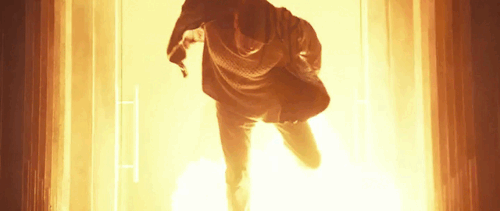
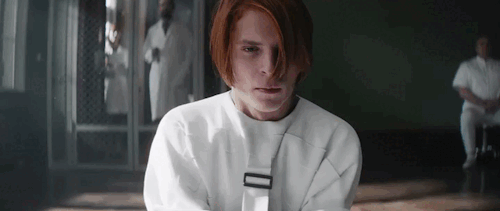

I don`t know if it works by now, but some time ago you could watch this lovely movie on Netflix.

The Master and Margarita / Мастер и Маргарита (2024) This is a loose adaptation of Russian classical novel "The Master and Margarita" by Mikhail Bulgakov. I genuinely hate this book, but the adaptation reinterprets it, divides it into very interesting layers and makes it understandable and beautiful.
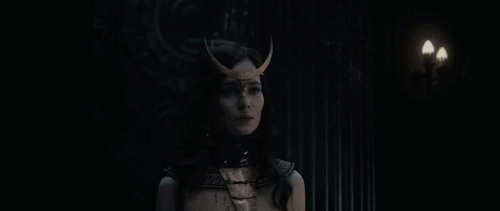

It`s layered, so it will probably be hard to understand what layer are we currently on if you are not familiar with the original story. The first layer is an ugly Soviet reality, the second layer is a plot of the novel that the main hero is writing, a story within a story. The third layer is the insane intertwining of the first two layers. On the reality layer the Master loses his job and freedom because of friend's denunciation and becomes star-crossed lovers with a married woman. On the novel level he meets devil, who visits Moscow by chance, and the devil gives him and his woman opportunity to live their lives being free from everything that usually tortures people IRL. Somewhere among those layers is a little plot about Jesus and Pontius Pilate.



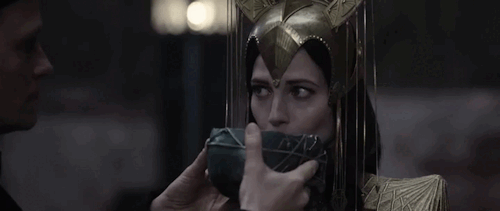
The movie is visually beautiful. Although it feels pretty anti-Soviet, Soviet visuals of the movie are gorgeous. There were used the Stalin-times concepts of Moscow of the Future, the CGI buildings in frame came from the real architecture projects of those times. The Stalin Empire architecture style and views are typical for Moscow (but as I know, ironically, this all was shot in Saint Petersburg). It seems to me that this movie is heavily stuffed with visual allusions to the Western works: devil's escort looks like bunch of Pennywises, Margarita is Enchantress from Suicide Squad I, the scene of blood dripping is from Blade I etc. Usually, when I see it in Russian movies, it feels like plagiarism because I can recognize the reference but there is nothing except for these references . But here we have got the plot, so the allusions work as allusions and don`t irritate me.

The movie is dark, disturbing, uncomfortable. It really makes you feel as if you watch devil and his escort marching around you; they ravage, kill and destroy everything and you can only breathlessly, helplessly and in fear watch them. The German actor playing devil is insanely good. He stole the movie and I understand why it should have been named Woland (the devil's name) instead of the current movie's name. You may want to watch it, because it's very unusual in terms of plot and visuals experience, especially when you are not familiar with the book.
How to fight your doom (Pt. 6)

Episodes 27-36 From now on the fearsome and almighty Demon Lord turns to be extremely gentle and soft and it causes in some viewers cognitive dissonance. But is his defence I could say that he is in love for the first time in his life, his love is finally requited so his teenage delight is understandable. Besides, he is like that only when he is tête à tête with the Girl.

The great awkwardness of the moment when you are jealous and at the same time fragile in terms of your love. I like Girl's face expression here. The most part of Silent Moon Palace story arch Girl tries to be worthy of Demon tribe as if she already decided to turn to their side (which is strange) and still tries to persuade Devil not to kill demon and fairy people on the battlefield (which is a really good idea). She even agrees to be tortured if it can ease demons' hatred. At the same time Devil takes his punishment as an atonement for losing opportunity to return his people from stone captivity.



So, Devil and Girl try to find a compromise, that can solve the Romeo and Juliet problem, but at the end of a day there are only two opportunities – to be apart or to solve the main conflict. The story, though, chooses for them both variants at once, which is the sacrifice. If you can't bear your beloved as well as your folk suffering, you can protect them all at cost of your well-being, your life and your pain.

Devil sacrifices himself: if Girl would not love him anymore, she would be safe (because the bracelet could be removed) and his people would be saved as well (demons could use Chidi`s soul from the bracelet to break the spell over 100 000 soldiers). Girl would be sad, yes, but it would be more painful for him as he destroyed his love with his own hands. But this plan doesn`t work so he decides to sacrifice himself in more physical way and to hand himself in the claws of ancient Melkor in order to save his people without killing his beloved.
Girl sacrifices herself as well. She kills herself in order to save Devil`s life but it also miraculously solves the main conflict: resurrected demons and fairies all bow to her divine power and start truce.

«I promise you to stay with you forever». So they are truly heroes in this story. In the hero`s journey a true hero is a person, who is ready after all hardships and inner development to sacrifice everything, even his own life, for the greater good/well-being of all people/his country etc. In Chinese culture The Folk is much more important than one person, so self-sacrifice is the right way to portray the real hero in there.
Btw, patricide is an unforgivable sin in Chinese (as well as European) culture, but authors of this story craftily turned it into «father`s suicide for the greater good and out of parental love», so it was the hint that Devil will be alive in the end of the story).
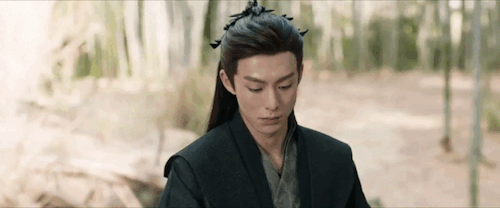
I don't think Devil did to Girl so many bad deeds during the story that he needed to punish himself for that at the end(and to allow Siming to beat him up). Maybe it is something that is left from the novel, in which Devil was not so fluffy and nice. His misbehave at the beginning of the story couldn't shake Girl's good attitude towards him so it barely pained her. Kidnapping her can't handle as his bad deed – he saved her and she really couldn't go back without dying under the hand of Heavenly Emperor. A wish of destroying Fairy Realm was not a crime against Girl specifically and at the end Girl understood his reasons (although she didn't want it to happen). Her suffering in Fuju Cave was willingly. The only moment when he really hurted her was the moment he lied to her before war, but it wasn`t cause of her death. If he said to her the truth, she would sacrifice herself as well in order to save him. So I think that this huge bunch of sufferings and punishments for Devil is the part of his redemption. If you are a villain (even if you are soft and fluffy and empathic in your soul) you should die or atone.
I like that story coils itself like Ouroboros, biting its tail: at the beginning of the story Devil unwillingly made nice things to Girl and she liked it – at the end of it he pretty willingly makes the same nice things to her with no effect; before, he was disgusted thinking he can be Girl's servant and by the end he WANTS to serve for her but she doesn't need him anymore. It shows that nothing can be started over again. Love gives you only one chance to build it in a right way.
Then he is ready to let her go and confesses his love for the last time: «Everyone feared, hated, relied on or respected me and only you loved me with no reason and accepted me with all my thorns and dickery but I haven`t got an opportunity anymore to say to you that I`m no more that thorny jerk». And (the power of accidents!) it is the reason why resurrected Goddess gives him a hint that he was heard.
It`s funny but only because resurrected Girl is THE girl he wanted to get back he finally looks into her Book of Fate and decides to change her fate.
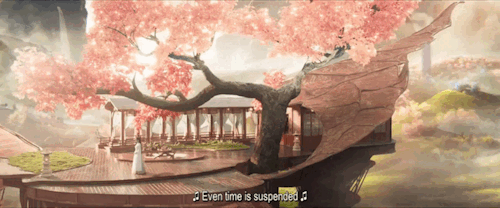



Farewell kiss feels bittersweet. Devil never prefers duty over love throughout the story. He chooses to punish himself and to kill himself instead. He makes impossible for Girl, goes against Heavenly rules and gets his punishment for that, which is death. And a really hard choice, hero's choice is up to Girl. She needs to shatter the primordial spirit of her beloved one in order to save the world (a shattered spirit can't reincarnate and can't be put together again, as it was in case of Chidi's and her Student's, who are gone for good). And she does it.

It`s funny: fairies say that Goddess` sealed abilities can be revealed only with marriage with GoW but we can see them in their full power when she protects her loved one Devil (in the Mortal Realm and in the Final Battle too).

Devil`s demon army coming to help in the name of Three Realms and his ability to get the Glazed Fire although he is a demon wraps the conflict between demons and fairies up for good. Even Heavenly Emperor admits that he was wrong thinking that demons (read: inferior, wicked and cruel beings) are not capable of doing something like that.
Our heroes are indeed cheaters (THE POWER OF ACCIDENT!): it turnes out that at their first meeting their souls were intertwined and Girl's primordial spirit filled everything inside of Devil. And it was the reason why he has an opportunity to resurrect her. And, honestly speaking, at these circumstances, did he ever have a chance NOT to fall in love with her? If it isn't a fate, what is it then?


And the main cheat is his comeback at the very end of a story (I read it on tumblr in someone else's meta, but I think it is pretty logical to be true): she places her curse on his body once more (the previous curse disapreared when she died), tying him to her and ORDERS him not to go when he starts dissipate. So his Blood of Heart, a piece of primordial spirit, can't disobey and puts itself into her arm.


An interesting thought: as I remember, the heart-hidden hairpin was used by the Moon Tribe Founder so her Fairy-ex-BF couldn't see her heart. Does it mean that the same curse connected them too? Could it be that Xishan curse had always something to do with love relationships? And then, if your Girlfriend IS the powerful Goddess, who can resurrect hundred of thousands people at once, it is only matter of time when she resurrects you.
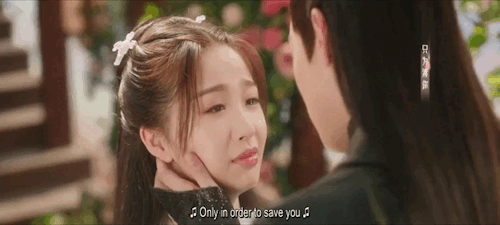
It is a beautiful story which represents ideal «enemies to lovers» relationships development (but in a fairytale way, because, as you could see, THE POWER OF ACCIDENT reigns here). It has got everything that you need to believe in their relationships: unusual methods to get close, painful unresolved romantic tension, ABSOLUTELY ADORABLE salvation of this romantic tension, sufferings and parting that only build their final union more joyful for viewers. I`m under impression. Wow!
Episodes 1-7 Episode 8 Episodes 9-13 Episodes 13-19 Episodes 20-26
How to be a more interesting character than the Main Hero (Pt.3)
Shangjue and his didi (pt.2/2)
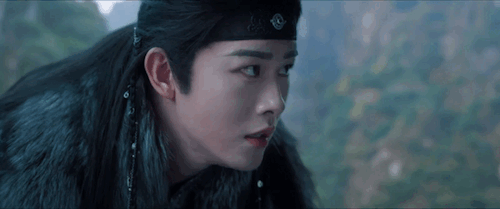
Yuanzhi wants to save Shangjue from any kind of pain so badly, and not only because he feels guilt for brother's loss, but also because he is able to see brother's true personality: Shangjue is an invisible root of Gong tree.



When an assassin and didi have a conversation in the final part of the drama, she says that there are people, in front of whom Shangjue could be vulnerable, but Yanzhi smirks and says that the Martial World won`t allow it. And it happens to be true: he knows that Shangjue’s fiancée is an assassin and he knows that, no matter how much Shangjue is into her, she would not hesitate to kill him if she had a chance, so Shangjue`s soft spot for something (such as a woman he likes) would be his doom. But he needs to look invincible, because the whole clan counts on him and relies on him.

Because Shangjue is a root of Gong clan, everyone sees only thriving and green branches and beautiful flowers (which are wealth, power and secure of Gong clan), but no one sees that it wouldn`t be possible without a root, strong yet hidden under the soil (aka one hardworking man).
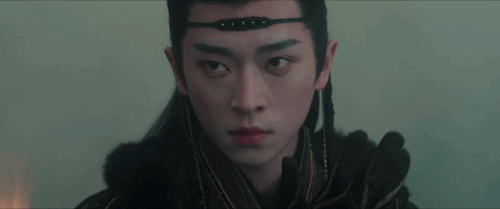
I often find the fate of Shangjue's type of heroes very unfair: a person unnoted takes care of everyone and is rewarded at the end only with sufferings and death. But this story is different, because Shangjue has got his didi, who doesn't care about world but eagerly takes care of him while he takes care of anything else. This scene was the second one during the drama that upset me a lot. I spoiled myself some shots of Yuanzhi crying over brother's body and I was sure he would die because he isn't fluffy and spotless enough to stay alive in Chinese drama. Fortunately, he didn't:
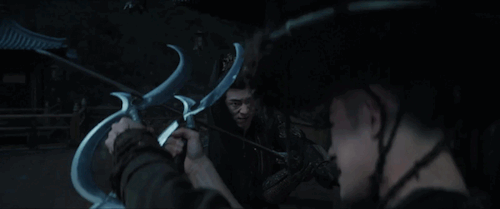







It works vice versa, too:

Yuanzhi is, I suppose, coded as someone like Asperger: he is kinda genius, he preferred insects and plants to people as he was a child, he couldn`t understand why people cry and felt uncomfortable with someone`s touching (he slipped out of Shangjue’s grip when Shangjue took his hand). And Shangjue did a great job socializing him.

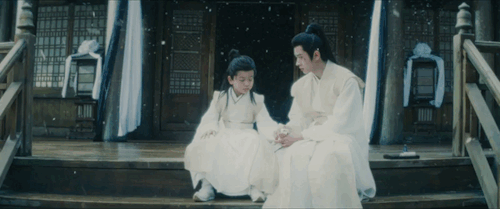
Being an adolescent, Shangjue hadn`t problems with feeling expression. Things Shangjue taught his didi in a flashback are the opposite to those the Main Hero’s mum taught MH and to those Shangjue believes now. Shangjue told Yuanzhi that a man should cry because in that case someone would understand one's woe and this sympathizing could help to recuperate one's soul, but now he never cries in front of someone. However, Yuanzhi learned his lesson well and isn`t embarrassed to express his feelings freely.
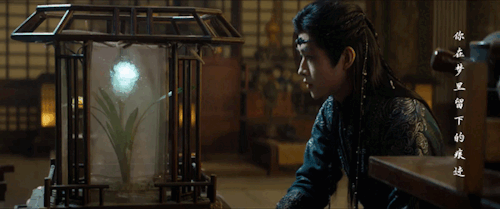
I found this scene very weird (if not taking into account that the flower is obviously a red herring): the Main Hero and Shangjue both fancy girls, while didi fancies a magic flower. But later, as I finished the drama, I understood: didi fancies Shangjue the most. The unique and almost extinct flower isn`t some treasure for him, it matters only that this flower can save Shangjue`s life and increase his inner powers. The previous one was taken away from Shangjue, and Shangjue allowed it to happen, because his needs didn`t matter to him compared to prosperity of his clan. (Later, as we know, it was spent in vain by a villain, which made me feel terribly sorry for Shangjue). But his didi values him enough to try to take care of him once more (and for this time he has planted more than one, in order something would end up in Shangjue’s hands even if clansmen would need this flower, too. How smart of his!). And I like that his love is not in vain – Shangjue loves him, too, and believes him in any situation, and that warms my heart. I love their relationship a lot.
And the most vivid feeling that he freely demonstrates is a jealousy towards Shangjue’s fiancée (btw, I like that Shangjue understands it and pardons his tantrums):

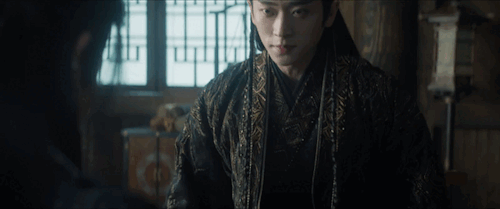
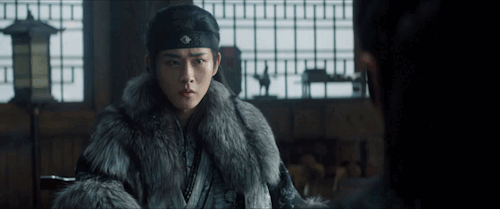
"Go ahead, tell me what's on your mind." *opens his mouth to start talking* "Well, rather don`t. I can see it on your face." *smiles*
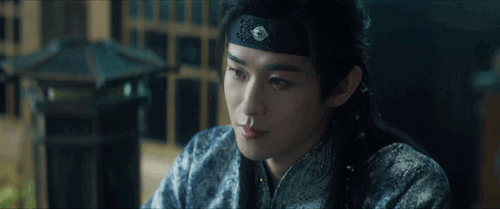

So, in the part 4 I will talk about Shangjue and her. Shangjue. Introduction Shangjue and his didi, Pt. 1 Shangjue and his fiancee
A (scary) fairytale about love for adults — "The Mistress of the Copper Mountain" musical

It's a relatively new Russian musical by Gleb Matveychuk (premiered in 2024), I watched it in flesh this week and felt the urge to tell someone about it. The Mistress of the Copper Mountain (Хозяйка медной горы) is a character of Ural folklore (made up by a writer Pavel Bazhov, though). She is a spirit of Ural Mountains, and, as any other spirit, a trickster rather than a main character of the stories, who is kind to some people and cruel to the other. The base of the musical are three stories of Pavel Bazhov: "The Mistress of the Copper Mountain", "The Malachite Casket" and "The Stone Flower", but the stories are fused and rewritten in a more suitable for a musical way: The Mistress is not a trickster anymore but a tragic character of a story, two other main heroes are a jewelry mason Danila and a daughter of the Mistress, Tanya. The plot of the Bazhov's stories exists only as some homages in the musical's plot, so I'll recap only musical's story:

Stone masons' dance The 19th century, Ural, Russian Empire. The peasants (read: slaves) have to work at copper mines that belong to a cruel and ruthless feudalist. But there appears a problem: an evil spirit that guards the mountains has killed almost all of young mine workers.

The Mistress of the Copper Mountain kills unlucky peasants because they have come to rob her mines. There is an insanely beautiful aria of the Mistress but for some reasons unknown the director of this musical doesn't want to record audio versions of songs, so I've found her aria sung by some other artist (not the one from this musical). I don't like it, but it's better than nothing: Youtube till 3:05.
To help people, a jewelry mason Danila volunteers to go to the mines and to meet an evil spirit. When they meet, Danila asks her to stop massacring peasants because they are slaves and can't do as they please. She asks him in return to spread her warnings to feudalists: they have to leave the mountain be or they will be killed.
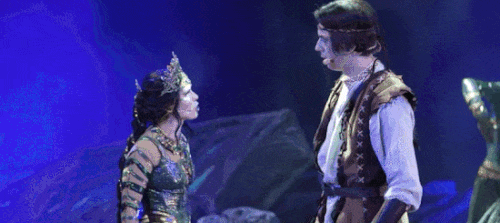
Danila keeps his word and gets punishment for his audacity. While getting healed by a forest witch, he learns a story of the Mistress: she was born as a result of non-consensual sex of Slavic Hades and Persephone, unloved and cursed to be unloved till the end of her days. Besides, she has got the Stone Flower, an artefact, one glance on which can reveal all the secrets of the mason craft.
Danila feels pity for the Mistress but also wants to know the secrets of the mason craft. He tries to create his best work but feels that he lacks this sacred knowledge that only the Mistress has:
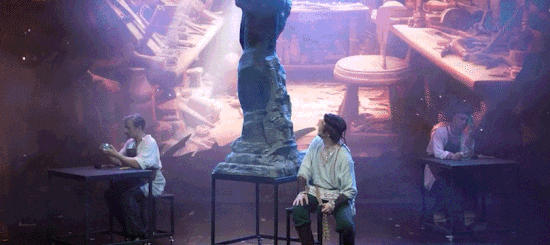
Danila laments on his lack of knowledge while making a sculpture of the Mistress.
There is a beautiful aria sung by Kirill Gordeev, but I have only a pirate audio: Bilibili, timecode 48:30
As soon as Danila fulfills his promise, the Mistress allows him to ask for reward. Danila asks her to show him the Stone Flower - the secret of the mason craft:

Unexpectant, the mysteries of the Universe reveal to him the perfectness of the Mistress and he falls in love with her:

She isn't happy about it because after one night of love he will turn into stone, but he is eager to sacrifice himself in order to give the unloved semi-goddess a spark of love, so they spend night together:

The Mistress gives birth to a girl and gives her away to people because she thinks her stone heart can't give her daughter enough love. One peasant woman becomes girl's stepmother, names her Tanya and gives her all her love:

Meanwhile, the Mistress lives all alone in her mountains and suffers from lovesickness to her deceased lover:
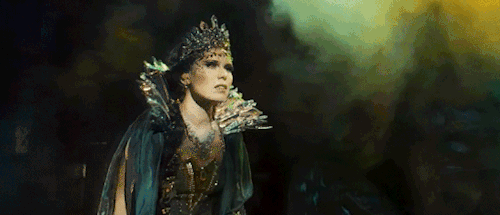
The aria of the Mistress in this part is here, in amateur version on YouTube, timecode 3:06. It's melodically the same as the duet of Danila and the Mistress before they spend night together, you can hear it in the pirate version on Bilibili, timecode 56:15. Although Tanya is loved by her stepmother, peasants find her strange and avoid her, and even want to hurt her, thinking she is an evil spirit herself. So her mother gives her magical dowry that wakes up her semi-goddess powers:
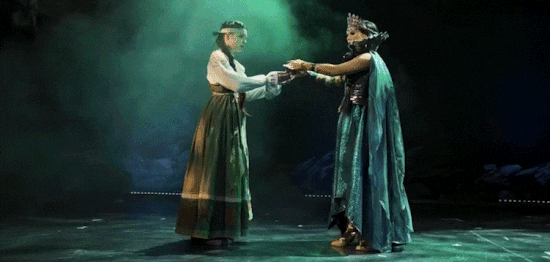
Then the Mistress punishes feudalists and their servants who tortured slaves, partly herself, partly with her daughter's hands.

This guy was eager to kill and torture peasants by feudalist's orders, so it was a pure pleasure to see this maniac get killed.
Tanya is extremely not happy about being used for the bloodshed, so she blames her mum for being a monster and herself for being a monster's daughter. I like this song a lot. And again, only pirate version: bilibili, timecodes 1:14:55 and 1:44:15. But the Mistress explains her about the curse and her stepmother says she has got a kind human heart of her father, so Tanya decides to take mother's curse to herself. Her kind heart will allow her to be benevolent and generous mistress of Ural mountains.

Tanya puts mother's cursed crown on. The dissipated curse releases the Mistress of the Copper Mountain and brings Danila to life. Now they can finally be together. The only one official audio from this musical is the final duet of the Mistress and Danila (Vera Sveshnikova and Kirill Gordeev are singers from the musical):
I liked that it was a pretty feministic story: "the lady in the fridge" is a man, the one who finds something beautiful in the monster and sacrifices himself in the name of love is man as well. It's pretty fresh. The main idea "love defeats everything" is not from Bazhov's stories but it's an immortal idea. And the plot of returning an evil creature to the light side by the power of love is typical Russian and sometimes Asian, so it can be something unusual for a Western viewer (for the sake of variety). At last, let me show you some pirate medley of video scenes from the musical:



P.S.: I also like the aria of the feudalist "Equality is a myth", but even pirate version is of almost unbearable quality. But it's here, Bilibili, timecode 31:00.

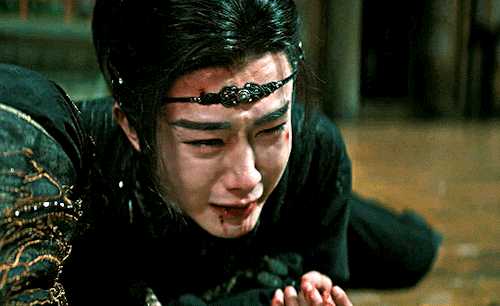




BROTHER...WAKE UP...
E23 : My Journey to You | 云之羽 (2023) dir.Edward Guo

New moon, would you open the gates
And take me away, away from this night...


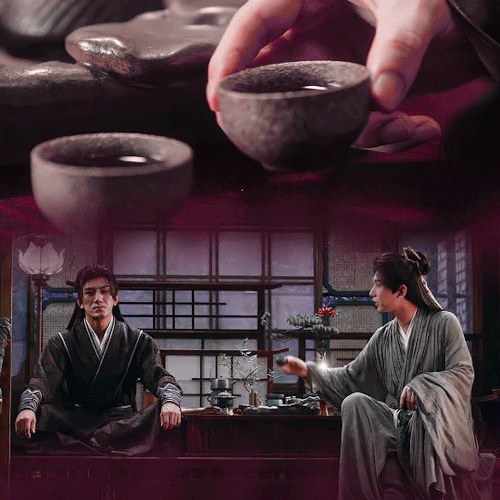



Li Xiang Yi and Di Fei Sheng being each other's nemesis: a brief summary.
Swooning over a secondary character (again), Pt. 1/3

This is Moo-yeon, the best assassin of the wicked vice-prime minister Kim Cha-eon, the most powerful man in Joseon. He is VERY good at archery.




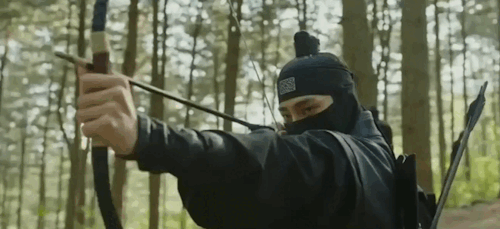
And not really good at anything else.
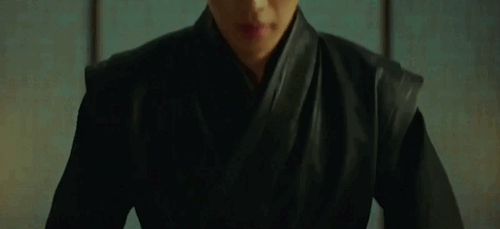

His servitude for Kim Cha-eon has a very heartbreaking background, though. Originally he was of a noble bloodline and was named Yoon Seok-ha. He and his younger sister Yoon Yi-seo were children of an official. But once there was a take-over and their father was accused of treason felony. The official and the whole his family were sentenced to be executed. The children managed to escape, but they were being cruelly hunted down as animals.
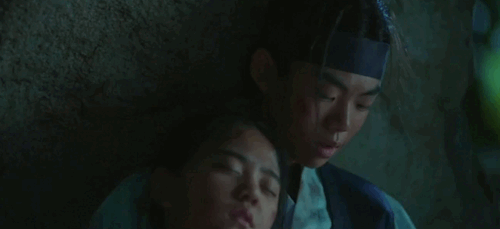

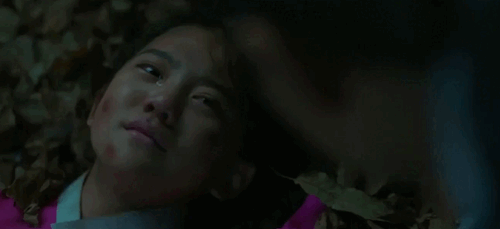
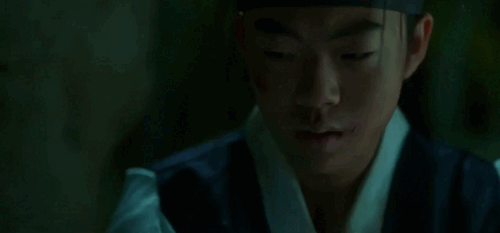
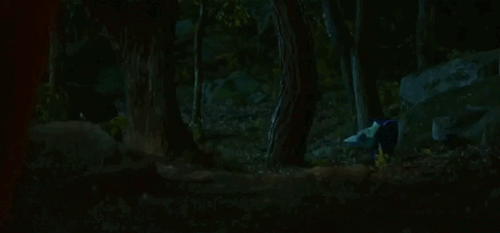
In the end Seok-ha hid his sister and led the chase away from her. Tired, scared and desperate, he sneaked into the residence of the murderer of his father, Kim Cha-eon, and tried to threaten him, promising he would kill off Kim Cha-eon's daughter, Kim So-hye, if that evil guy would continue to hunt down Seok-ha's sister.

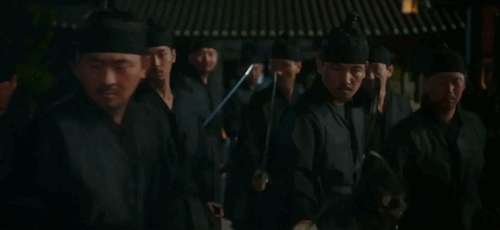
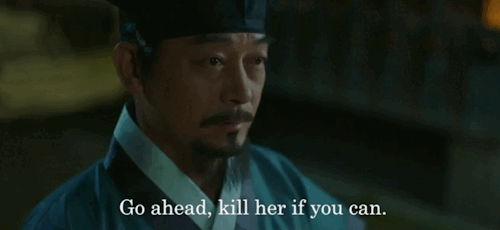
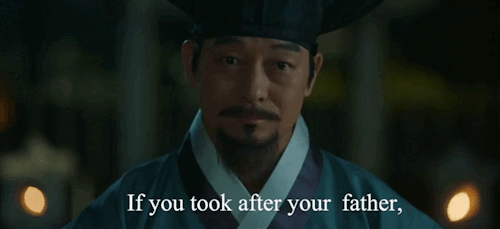
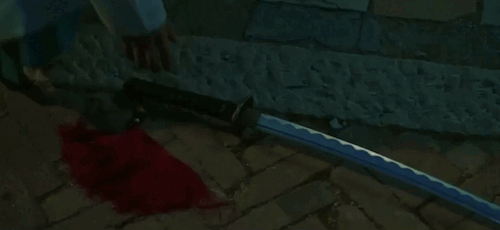

Spoiler: there was a love from the first blade pressed to one's throat. Mmmmm, delicious. And no, I`m not about Seok-ha and a vise-prime minister 😄 Naturally, Seok-ha failed because Kim Cha-eon had no heart and his daughter was not really of value for him, so there's nothing left to do for Seok-ha but to beg for death for himself and for mercy for his sister. But Kim Cha-eon had other plans for this stupidly brave boy. He made a deal with the boy and forced him to do everything Kim Cha-eon wanted him to do in trade for sister‘s life and freedom.



So here he is, professionally doing disgusting and honourless stuff for the murderer of his father. Here is Part 2 Here is Part 3
-
 aredhel-erinti liked this · 5 months ago
aredhel-erinti liked this · 5 months ago -
 aivee03 liked this · 5 months ago
aivee03 liked this · 5 months ago -
 kookiecbx liked this · 6 months ago
kookiecbx liked this · 6 months ago -
 thephoenixeyes liked this · 6 months ago
thephoenixeyes liked this · 6 months ago -
 bird-of-space liked this · 6 months ago
bird-of-space liked this · 6 months ago -
 dreadful-hecate liked this · 7 months ago
dreadful-hecate liked this · 7 months ago -
 truero reblogged this · 7 months ago
truero reblogged this · 7 months ago -
 truero liked this · 7 months ago
truero liked this · 7 months ago -
 skyknightawol liked this · 9 months ago
skyknightawol liked this · 9 months ago -
 ai-koku-blog liked this · 11 months ago
ai-koku-blog liked this · 11 months ago -
 fangdoubing reblogged this · 11 months ago
fangdoubing reblogged this · 11 months ago -
 lovingpran liked this · 1 year ago
lovingpran liked this · 1 year ago -
 gravitasmalfunction liked this · 1 year ago
gravitasmalfunction liked this · 1 year ago -
 anaustenheroine liked this · 1 year ago
anaustenheroine liked this · 1 year ago -
 gongziyus reblogged this · 1 year ago
gongziyus reblogged this · 1 year ago -
 shippymerch liked this · 1 year ago
shippymerch liked this · 1 year ago -
 natahjikio liked this · 1 year ago
natahjikio liked this · 1 year ago -
 nadznddn reblogged this · 1 year ago
nadznddn reblogged this · 1 year ago -
 sasasblr liked this · 1 year ago
sasasblr liked this · 1 year ago -
 labseraph reblogged this · 1 year ago
labseraph reblogged this · 1 year ago -
 labseraph liked this · 1 year ago
labseraph liked this · 1 year ago -
 seamayweed liked this · 1 year ago
seamayweed liked this · 1 year ago -
 aynabraun liked this · 1 year ago
aynabraun liked this · 1 year ago -
 blueberry-cheese-pizza reblogged this · 1 year ago
blueberry-cheese-pizza reblogged this · 1 year ago -
 skyheart77 liked this · 1 year ago
skyheart77 liked this · 1 year ago -
 lycoris-radiata-dreams liked this · 1 year ago
lycoris-radiata-dreams liked this · 1 year ago -
 stormdrivensea liked this · 1 year ago
stormdrivensea liked this · 1 year ago -
 little-pisces-dreaming reblogged this · 1 year ago
little-pisces-dreaming reblogged this · 1 year ago -
 aka-reira reblogged this · 1 year ago
aka-reira reblogged this · 1 year ago -
 painttolive reblogged this · 1 year ago
painttolive reblogged this · 1 year ago -
 sarcasmdoyougetit liked this · 1 year ago
sarcasmdoyougetit liked this · 1 year ago -
 natstarbuck reblogged this · 1 year ago
natstarbuck reblogged this · 1 year ago -
 abeautyforashesworld liked this · 1 year ago
abeautyforashesworld liked this · 1 year ago -
 palehorsemen liked this · 1 year ago
palehorsemen liked this · 1 year ago -
 natstarbuck liked this · 1 year ago
natstarbuck liked this · 1 year ago -
 inkcalamities liked this · 1 year ago
inkcalamities liked this · 1 year ago -
 boredhumanfan liked this · 1 year ago
boredhumanfan liked this · 1 year ago -
 thesilversun liked this · 1 year ago
thesilversun liked this · 1 year ago -
 lordraziel liked this · 1 year ago
lordraziel liked this · 1 year ago -
 rose-vybe liked this · 1 year ago
rose-vybe liked this · 1 year ago -
 melodious-tear reblogged this · 1 year ago
melodious-tear reblogged this · 1 year ago -
 melodious-tear liked this · 1 year ago
melodious-tear liked this · 1 year ago -
 silviakundera liked this · 1 year ago
silviakundera liked this · 1 year ago -
 lolllolosstuff reblogged this · 1 year ago
lolllolosstuff reblogged this · 1 year ago -
 btsiu liked this · 1 year ago
btsiu liked this · 1 year ago









